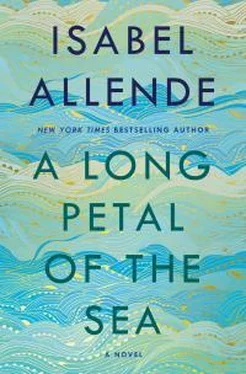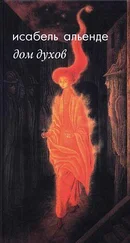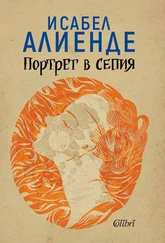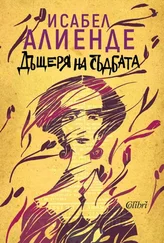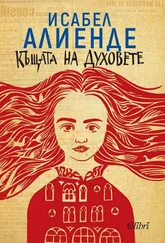When Ofelia wouldn’t cooperate, Father Vicente Urbina took the matter of adoption into his own hands. Once she had promised never to reveal it, the only other person to participate in the plan was Laura del Solar. It was a necessary white lie, forgiven in the confessional and sanctioned by heaven. The midwife, someone by the name of Orinda Naranjo, took it upon herself to follow the priest’s instructions, and kept Ofelia in a semiconscious state before the birth, and sedated during and after it. Then, with the grandmother’s help, she whisked the baby away before anyone in the convent could ask questions. When Ofelia emerged from her stupor a few days later, they explained she had given birth to a baby boy, who died a few minutes after being born. “But it was a girl. And it was me,” Ingrid told Victor. Her mother was told it had been a boy as a precaution, to confuse her and prevent her finding her daughter if at some hypothetical future moment she came to suspect what had happened. Doña Laura, who had agreed to deceive her daughter in this way, meekly accepted the rest of the plan, including the farce of the cemetery, where they erected a cross over a tiny empty coffin. None of this was her responsibility; it was dreamed up by someone far more devious than her, a wise man of God, Father Urbina.
Over the following years, seeing Ofelia in a good marriage, with two healthy, well-behaved children and leading a successful life, Doña Laura buried her doubts in the deepest recesses of her memory. From the outset, Father Urbina told her the baby girl had been adopted by a Catholic couple in the south of Chile. That was all he could tell her. Later on, when she plucked up courage to ask for more details, he reminded her curtly she should consider the grandchild as dead: she had never belonged to the del Solar family, even if she had their blood in her veins. God had given her to other parents. The couple who adopted the girl were descendants of Germans on both sides—big, tall, blond, and blue-eyed. They lived more than eight hundred kilometers south of Santiago in a lovely town by a river with trees and lots of rain (although the grandmother never knew this). It was when this couple had lost hope of having their own children that they took in the newborn baby offered them by the priest. A year later, the wife became pregnant. In the years that followed, they had two children as Teutonic in appearance as themselves. Compared to them, Ingrid, who was small and had dark hair and eyes, stood out like a genetic mistake. “From childhood I felt different, but my parents spoiled me terribly, and never told me I was adopted. Even now, when the whole family knows, if I mention adoption my mother starts to cry,” Ingrid explained to Victor.
Seeing her sleeping on the sofa, Victor could study her closely. She wasn’t the same woman he had been talking to hours earlier; asleep she looked like the young Ofelia, with the same delicate features, childish dimples in her cheeks, arched eyebrows, widow’s peak, light golden skin that must become tanned in summer. The only thing missing were the blue eyes; otherwise she would have been almost identical to her mother. When she first arrived, Victor had thought he knew her from somewhere, but didn’t connect her to Ofelia. Now that she was lying there relaxed, he could see not only how similar they looked, but how different their characters were. Ingrid had none of the superficial coquettishness of the young Ofelia he had loved. She was intense, serious, and formal, a woman from the provinces, with a conservative, religious background. Her life must have been placid until she learned of her origins and set out to find her father. Victor also reflected that she didn’t seem to have inherited much from him: neither his lanky, tough body, his aquiline nose, spiky hair, stern expression, nor his introverted character. She was gentle, and he guessed she must be very maternal and loving.
He tried to imagine what a daughter with Roser would have been like, and regretted never having had one. At first they hadn’t felt they were properly married: they were together only temporarily as the result of a convenient agreement between the two of them; and by the time they realized they were more married than anyone, twenty years had gone by and it was too late to think of children. It would take Victor an effort to get used to Ingrid, because until the previous night Marcel had been all the family he had. He thought Ofelia del Solar must be as surprised as he was; after all, she too was discovering late in life that she had an unexpected daughter. Not only that, but Ingrid had given them three grandchildren.
Ingrid’s husband was also of German extraction, like her adoptive parents and many others in some southern provinces colonized by Germans from the nineteenth century on, thanks to a selective immigration policy. The idea had been to populate the land with true-blooded white immigrants to bring discipline and a work ethic to Chileans, who had the reputation of being lazy. In the photos Ingrid had shown him of her children, Victor saw a young man and two girls who looked like Valkyries and seemed to have inherited none of his traits. He found it hard to recognize them as his descendants.
“Ingrid’s son is married, and his wife is pregnant. I’ll soon be a great-grandfather,” Victor told Marcel toward the end of their phone conversation.
“And I’m an uncle to Ingrid’s children. What will I be to the one about to be born?”
“I think you’d be something like a great-uncle.”
“Wow! I feel really old. I can’t help thinking of Àvia . Do you remember how she wanted me to give her great-grandchildren? Poor thing, she died without knowing she already had them. A granddaughter and three great-grandchildren!”
“We’ll have to go and visit these people from a different race, Marcel. They’re all Germans. Besides, they’re right-wing and were supporters of Pinochet, so we’re going to have to bite our tongues in front of them.”
“What’s important is that we’re family, Papa. We’re not going to fight over politics.”
“I’ll also have to establish some regular communication with Ingrid and the grandchildren. They’ve fallen on my head like apples from a tree. All these complications: maybe I was better off before, alone and peaceful.”
“Don’t talk nonsense, Papa. I’m dying to meet my new sibling. Well, cousin, all the same.”
Victor calculated that if the family got together he would inevitably meet Ofelia del Solar once more. That didn’t seem such a bad thing: he had long since recovered from any nostalgia he felt for her, and yet he was curious to see her again and correct the bad impression he had of her from the Caracas Athenaeum eleven years earlier. Hopefully he would have the chance to tell her that, thanks to her, he had deep roots in Chile, deeper than any he had in Spain. It was ironic he was linked in this way to the del Solar family, who had been so against the immigration of the Spanish refugees on the Winnipeg . Ofelia had offered him an amazing gift: she had opened up the future for him. He was no longer an old man with only his animals for company. Now he had several Chilean descendants as well as Marcel, who never considered himself as anything else.
Ofelia had been far more important in his life than he had ever thought. He had never really understood her: she was more complex, more tormented than he believed. He thought about those strange canvases of hers, and reasoned that by marrying and choosing a conventional life, the security of a marriage and her place in society, Ofelia had exiled herself from herself, renouncing an essential part of her soul, although possibly she had partly regained it in later life and in solitude. But then he recalled what she had said about her husband, Matias Eyzaguirre, and guessed that she had not renounced that part of her out of laziness or frivolity, but from a very special love.
Читать дальше
